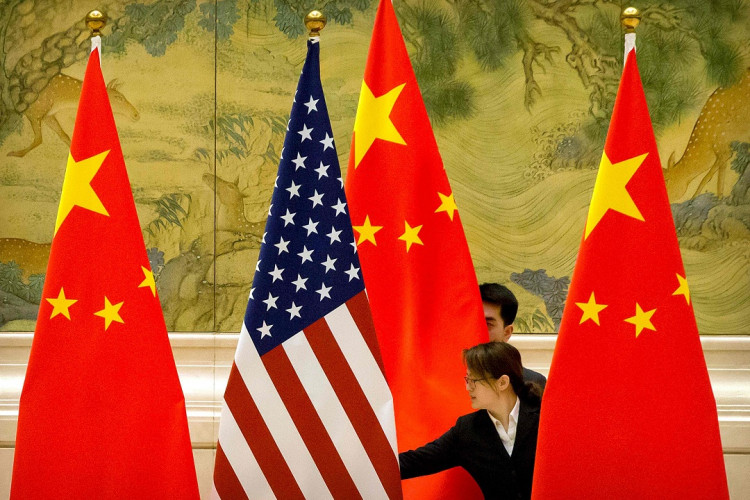China has sharply criticized the United States after the Biden administration added dozens of Chinese companies to its export control list, accusing them of aiding Russia's military efforts in Ukraine. The move, which targets 42 Chinese entities among a total of 105 firms from various countries, has further strained the already tense relations between the world's two largest economies.
In a strongly worded statement released on Sunday, China's Ministry of Commerce condemned the U.S. action, asserting that it disrupts international trade and undermines normal economic exchanges. The ministry vowed to take "necessary measures" to protect the legitimate rights and interests of Chinese companies affected by the sanctions.
"The U.S. has once again overstepped its bounds, using export controls as a tool of economic coercion," the ministry said. "Such actions not only violate international trade norms but also threaten global economic stability."
The U.S. Department of Commerce announced the sanctions on Friday, placing 105 entities from Russia, China, and other countries on its "entity list" over their alleged involvement in supporting Russia's military activities. These companies are accused of providing critical goods and services that enable Russia to continue its war in Ukraine, despite the international sanctions regime.
According to the U.S. government, the targeted firms are involved in various activities, including supplying advanced electronics and components to Russian military-related parties and producing drones for Russia's use in its invasion of Ukraine. Being placed on the entity list means that U.S. suppliers must obtain special licenses-typically difficult to secure-before they can sell goods or services to these companies.
The Biden administration's actions are part of a broader effort to tighten the economic screws on Russia, which has faced a barrage of sanctions since its invasion of Ukraine in February 2022. However, the effectiveness of these sanctions has been a subject of debate, particularly as Russia continues to sustain its economy through the sale of oil and gas on the global market.
China's response underscores the growing geopolitical divide between Beijing and Washington. While China has publicly maintained a stance of neutrality regarding the conflict in Ukraine, it has increasingly aligned itself with Russia, particularly in opposition to Western policies. Chinese companies have been accused by U.S. officials of supplying dual-use goods-products that can be used for both civilian and military purposes-to Russia, thereby aiding its war effort.
The Chinese government has denied these allegations, insisting that it adheres to international norms and does not support Russia's military operations. However, China's increasing purchase of Russian oil and its deepening economic ties with Moscow have drawn scrutiny from the West. The relationship between Russian President Vladimir Putin and Chinese leader Xi Jinping, highlighted by their meetings and mutual support, further cements the alliance between the two nations.
The U.S. sanctions come at a delicate time in Sino-American relations, already fraught with disputes over trade, technology, and human rights. The Biden administration has continued the hardline stance on China that began under former President Donald Trump, particularly in areas such as technology transfer and intellectual property.
In its Sunday statement, China's Ministry of Commerce signaled that the country would not take the U.S. sanctions lightly. "China will adopt all necessary measures to safeguard the legitimate rights and interests of Chinese enterprises," the ministry warned, hinting at possible retaliatory actions.






